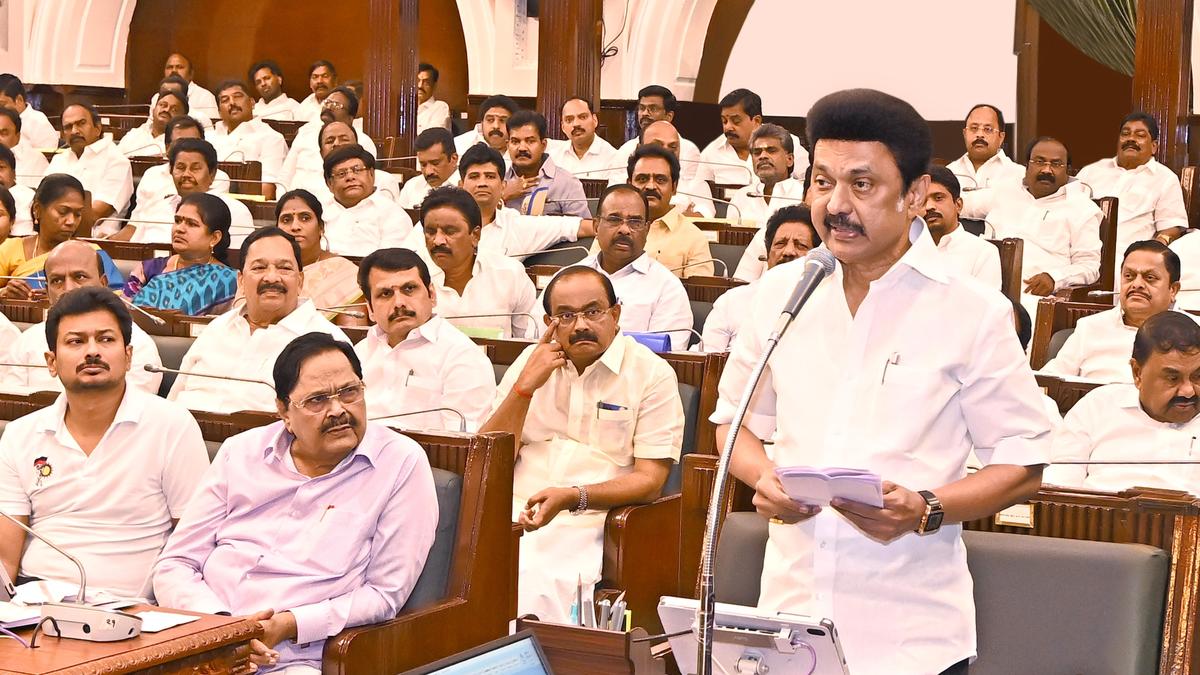
Man arrested in Anna University sexual assault case not DMK member but party sympathiser, says T.N. CM Stalin
The Hindu
The Tamil Nadu police will have no mercy on and will not spare anyone, if more individuals are found to have been involved in the sexual assault on a student in Anna University, Chief Minister M.K. Stalin said in the Assembly on Wednesday (January 8, 2025). He added that the man arrested in sexual assault case was “not a member of the DMK but a sympathiser of the party.”
The Tamil Nadu police will have no mercy on and will not spare anyone, if more individuals are found to have been involved in the sexual assault on a student in Anna University, Chief Minister M.K. Stalin said in the Assembly on Wednesday (January 8, 2025). He added that the man arrested in sexual assault case was “not a member of the DMK but a sympathiser of the party.”
“Whoever it may be, the police will have no mercy on them and initiate strong action,” Mr. Stalin said in the House. The charge sheet in the case will be submitted to the court within 60 days and this will ensure that the accused gets the highest punishment, he said.
Responding to a special call attention motion moved by the Opposition parties in the House, the CM said the accused in the case, Gnanasekaran, was arrested the very next day after a complaint was received in the Kotturpuram police station in the afternoon of December 24. He has since been detained under the Goondas Act.
He is “not a member of the DMK but a DMK sympathiser,” Mr. Stalin said, adding that he might have taken photos with ministers and politicians but there was nothing wrong with that per se. “Whoever it may be — even if they are from the DMK — we will definitely take action. Nothing will change that,” he added.
As for the Opposition parties’ criticism over the FIR leak in the case, Mr. Stalin said the National Informatics Centre, which was under the Union government, on being alerted by the State government, had resolved the technical glitch that caused the problem.
Rejecting the charges claiming an absence of CCTVs on the campus, he said the accused was arrested based on visuals from the cameras at the site. “This government would crush offences against women with an iron fist,” Mr. Stalin underlined. He also recalled various measures initiated by the DMK government for the welfare of women in the State. Charge sheets have been filed within 60 days in about 86% of the cases of offences against women, he stated.
The State government has organised over 2.39 lakh awareness programmes in schools, colleges, and public places regarding women’s safety, the CM said. Referring to the recent judgment of a trial court awarding capital punishment for a man convicted in a case of pushing a woman in front of a train, Mr. Stalin said it was under his government that the punishment was awarded.





















 Run 3 Space | Play Space Running Game
Run 3 Space | Play Space Running Game Traffic Jam 3D | Online Racing Game
Traffic Jam 3D | Online Racing Game Duck Hunt | Play Old Classic Game
Duck Hunt | Play Old Classic Game











